It’s that time of year again where media, prognosticators and media prognosticators try to look into the immediate future to predict, and make sense of, the short-term economy. And, yes, even in this uncertain climate. Mechanical Hub will be featuring a series of exclusive Q & A sessions with industry leaders and players to get their views on the future, and living in a COVID world. The first in our series, we feature Mark Chaffee, VP Governmental Affairs and Commercial & Industrial Product Management, Taco Comfort Solutions.
MH: When it comes to 2021 industry forecasts, the most resonant word I hear is optimistic. But that word can become hollow if it doesn’t have any substance backing it up. Now I’ve read reports that residential service repair and remodel may remain constant with a slight increase in early 2021. On the other hand, according to AIA info, for example, there is a predicted 5.7% decrease in construction spending—hotels, office buildings, recreation—for 2021, with pent-up demand leading to anticipated growth in 2022. What does the short-term economy look like as it relates to Taco?
CHAFFEE: There’s one certainty: it’ll be a bumpy road, but there’s no surprise in that. We’re sure to see regional variances in economic challenge, and recovery. Business climates shifted in response to COVID-19. The tremors are still being felt, so the trend is: more shifting and variation. Though, gradually, our economy has made every attempt to adjust to the turmoil. So yes, there’s optimism in that.
We’re optimistic because we’ve built a resilient, responsive organization. As a family-owned company with more than 100 years of experience to draw on – through plenty of economic turmoil, and even world wars—Taco Comfort Solutions has found strength even in the worst of times. We’re nimble, flexible and entrepreneurial, characteristics that continue to position us well for the long-term. We invest in people and opportunity.
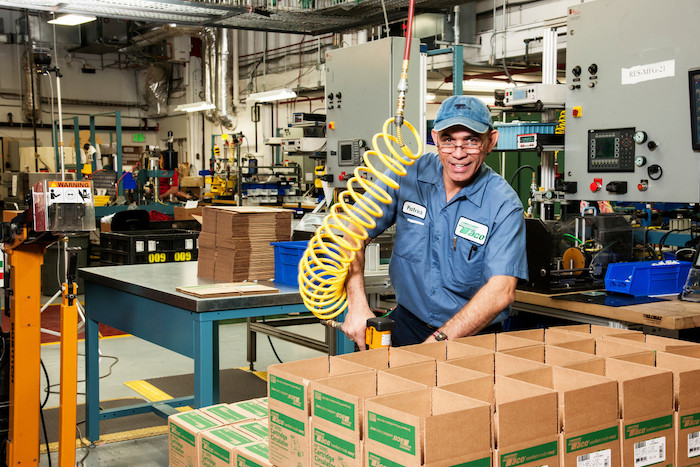
This year we also had to invest substantially to protect the health and safety of the Taco family, including employees, partners and customers. We quickly adapted our business model and the way we manufacture products so we could remain open and able to supply products.
I can’t understate the importance of these things: Taco’s health and longevity; its future, our future and the future of America’s economy depends of strengths like these and resilience that stems from smart, diligent, deliberate action – each and every day, one step at a time. We spin and pivot.
Just one example of how we’ve responded to the pandemic’s trauma and stress: our training programs have strengthened. Of course, we used to conduct more live, hands-on training at Taco and at Rep and Distributor locations, though now our online training has intensified with unexpected results. Our trainers – John Barba, Dave Holdorf, Rick Mayo, and Rich Medairos and Brett Zerba on the commercial side—have developed an incredibly strong outreach among customers. Customers are engaged and responsive, so it seems that even in the midst of challenge, we’ve managed to strengthen ties with installing contractors, system designers, engineers and specifiers. Of course, we’re eager to get back to a full slate of personal, boots-on-the-ground, hands-on and factory-based training with customers.
Undoubtedly, there are some areas in the market that have been severely impacted—hospitality is perhaps the biggest example of this. The international crisis of COVID-19 has been a huge disruption to hotel construction and renovation work. Architects and designers, general contractors and mechanical systems installers—especially those who tailored their work specifically to hospitality work—are forced to wait, with lots of business on hold. Another part of the market that’s similarly depressed is commercial office construction and remodeling.
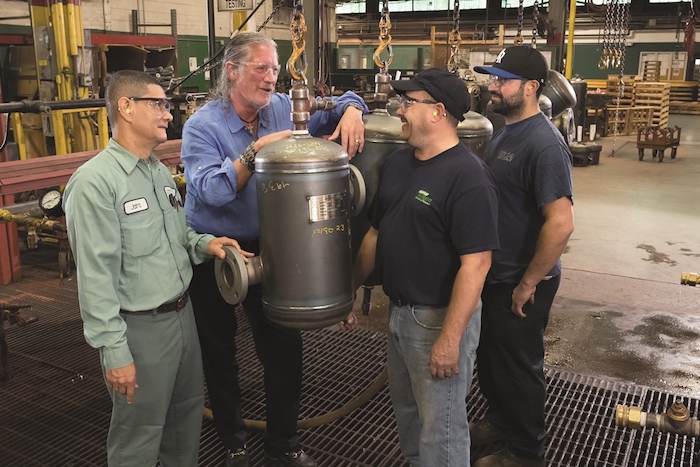
Professionals in these fields are unpleasantly faced with the need to examine the financial and technical hurdles of how to keep existing buildings in operation. Following this, there are then considerations about whether or not to downsize operations, or at least—“How can we better use the space we have, safely?”
Out of these concerns, two key issues emerge: efficiency, and ventilation.
If buildings are to remain in operation, then it’s with a greatly heightened awareness of the financial importance of improving energy efficiency in concert with maintaining the health and well-being of anyone who steps inside the building. Luckily our industry has the answers, solutions to these rather complex challenges. So in that respect, there’s a silver lining to the crisis we now face
MH: What are some indicators you look at to determine trends, movements, etc.?
CHAFFEE: We track a number of standard data sets like the consumer confidence level, stock market, and the strength of housing starts, construction and remodeling. We also watch the way people spend the money they have.
One promising change we’ve seen in response to COVID-19 has been that people are far better acquainted with their own comfort, or lack of it, at home. So, there’s a greater awareness of how to live with comfort systems, what’s involved, and how they can be improved if there are concerns. After all, families are brought together in ways that no one could have expected prior to the pandemic.
So now in the midst of winter conditions, people are responding to their own comfort or discomfort. Understandably, one of those reactions may be a desire to improve the comfort of a home. As we know, hydronic heat stands tall in that category. And, with their inherent flexibility, hydronic systems can be improved with relative ease. Not only the delivery of comfortable heat, but also the energy efficiency of system. Many Americans have chosen to invest in improvements and renovations as opposed to a vacation they can’t take. We’re seeing evidence of this every day.
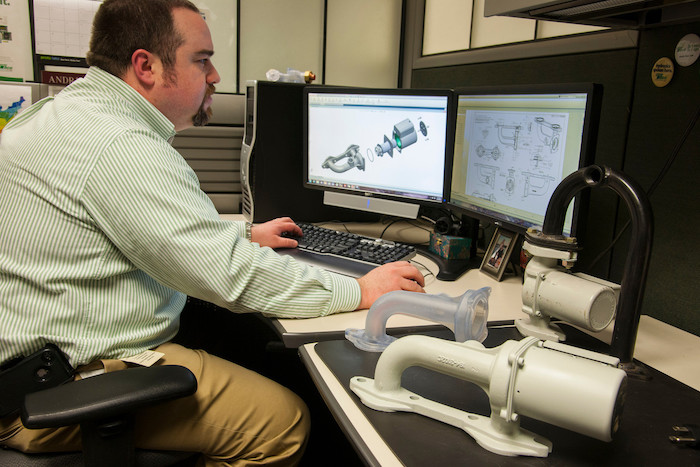
For the commercial market, we use different services to track projects through the engineering, design, specification and release of jobs. Of course, hotel and office space starts are down, though other commercial categories are still moving, though gradually and with huge variation based on geography. Interest rates remain low, money’s cheap and the underlying economy continues to chug along.
As for trends, we see the continuing expansion of strategic electrification. These initiatives are supported by more local utilities, state regulators, and fits with the new administration’s environmental stance as indicated by President Biden’s early executive actions.
For our industry, that means more heat pumps. We’ve already seen the seismic market shift to mini-splits and commercial VRF systems; but these systems use distributed refrigerant, where refrigerant lines are run throughout the building to terminal units. Adding pounds of additional refrigerant into a system where the global warming potential (GWP) of 410A is 2,088 will not be sustainable under the new climate goals Already in Europe we are seeing the move to “low GWP” refrigerants where the goal is to get under a GWP of 700. But the options for A3 and A2L refrigerants come with the risk of being flammable, along with not being retrofittable into existing 410A systems.
This is where we see the continued growth of geothermal heat pumps, especially in community based projects, along with hydronic-based air-to-water heat pumps having a major impact in future-proofing a house or building’s HVAC system while delivering heating, cooling and domestic hot water production. The best part is that the GWP of water is 0! Sure, you still need the refrigerant for the heat pump, but it’s kept at a bare minimum, is factory sealed and outside.
MH: I read somewhere that at the rate the U.S. is distributing the vaccine, we should be back to “normal” by 2024. Perhaps that’s a bit overly dramatic, but how does (has) Taco positioned itself from the “fallout” of COVID-19?
CHAFFEE: We’re cautious, but as I’ve said, we’re also optimistic. Taco continues to invest in its future.
Very important to Johnny White and Cheryl Merchant have been investments in the company and its ability to meet market demand, with products and technology that exceed expectation.
Investment in our training capability and outreach among customers is a very important part of that. Of course, Taco also invests in its people. As we’ve said on many occasion, Taco’s employees are Johnny’s family. He and Cheryl, and Johnny’s sons Ben and John—each, now with key management roles—see Taco’s stability as the continuation of a long dream, a tradition that’s grown and improved through the years only because of a genuine sense of belonging that Taco’s employees have with each other, and at all levels of company management. Our future is in their hands, so it’s easy to understand this very real emphasis.
MH: Is the only certainty heading into early 2021 uncertainty? How do you forecast and budget for such uncertainty? Or is it fairly certain at this point during the pandemic? (Certainly, a lot of certainty here, lol)
CHAFFEE: Again, we’re cautiously optimistic. And yes, some measure of uncertainty is guaranteed. We continually review and evaluate business conditions. People’s habits are changing in response to the pandemic; some of them may be altered forever. So, these become trends.
Because the HVAC industry was designated as an essential critical infrastructure workforce during the early stages of the pandemic, Taco Comfort Solutions and its suppliers were able to continue operations. Our strong, long-term relationships with suppliers, as well as our logistic partners, helped minimize supply disruptions.
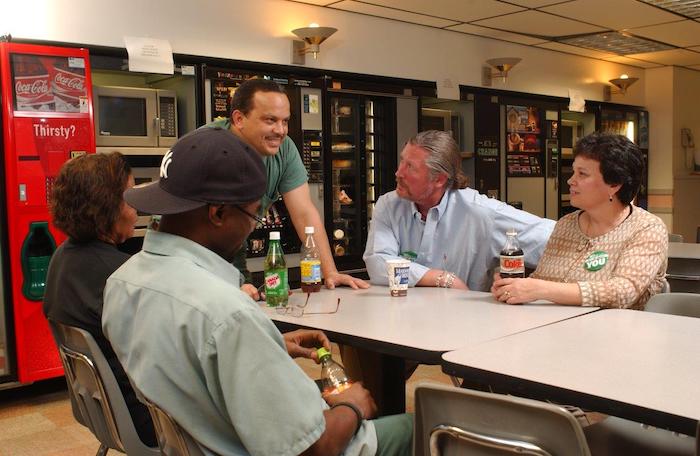
Our investment in inventory, combined with a comprehensive plan to ensure the health and safety of our workforce, has enabled us to continue to provide our customers with vital heating, cooling, and hot water products. We anticipate the capacity in the logistics industry will remain tight through the first half of 2021 due to labor shortages caused by COVID-19 cases as well as the prioritization of vaccine distribution.
MH: Without getting overly political, does a change at the presidential level (and congress) change the outlook for your company, if at all? (Infrastructure, regulations, green energy initiatives, etc.)
CHAFFEE: Under the Biden presidency, underscored by the renewed involvement in the Paris Accord, it seems certain that there will be an emphasis on the environment, where the improvements to existing buildings through energy efficiency is key. But there’s also an appetite on both sides of the political isle for increased infrastructure spending. This isn’t just roads and bridges but will also focus on our aging water infrastructure including significantly increased investment in state revolving funds. And, as part of that, there will be added attention to energy and operational efficiency.
We’re sure to see more incentives for energy conservation in the form of Federal rebates for the purchase and installation of energy-conserving and IAQ technologies. This will also incentivize manufacturers to develop more energy-efficient technologies.
Attention to commercial and industrial building improvements will lead to increased recognition of the importance of pumping systems and improved hydronic systems and their role in improving the energy efficiency of buildings, coast to coast.
Taco’s ahead of the curve here. We were deeply involved in DOE’s effort to bring about the labeling of commercial pumps … and now, we believe, the emphasis will again return to accomplishing the same for residential circulators. This will again focus attention on the need to replace remaining non-ECM pumps and circulators, with far more efficient ECM-powered equipment.
Many years ago, Taco also recognized the need to invest in and develop ECM technology. Those early efforts led to our role today as the nation’s leading sources of ECM technology. Taco now offers ECM circulators and pumps, from the smallest residential circulator, to pumps that serve the commercial and industrial markets.
That’s not to say there isn’t room for improvement; there is. We plan to expand our ECM product lines substantially. There’s great strategic value in this as we maintain our leadership role in helping to continue the market’s transformation toward better, more efficient pumping.
Mark Chaffee, is Vice President of Governmental Affairs and Commercial & Industrial Product Management, Taco Comfort Solutions.


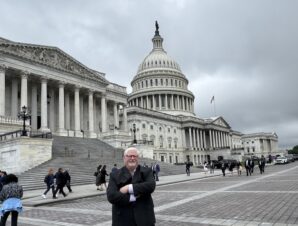
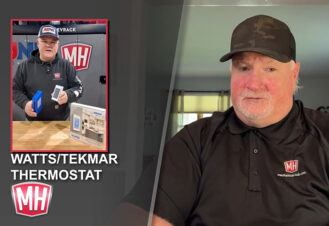
Join the conversation: